George Harrison died 17 years ago on Thursday, aged 58. Although in the shadow of the Lennon-McCartney partnership as a song writer, by the late '60s he'd flowered into one of the greatest songwriters of his generation.
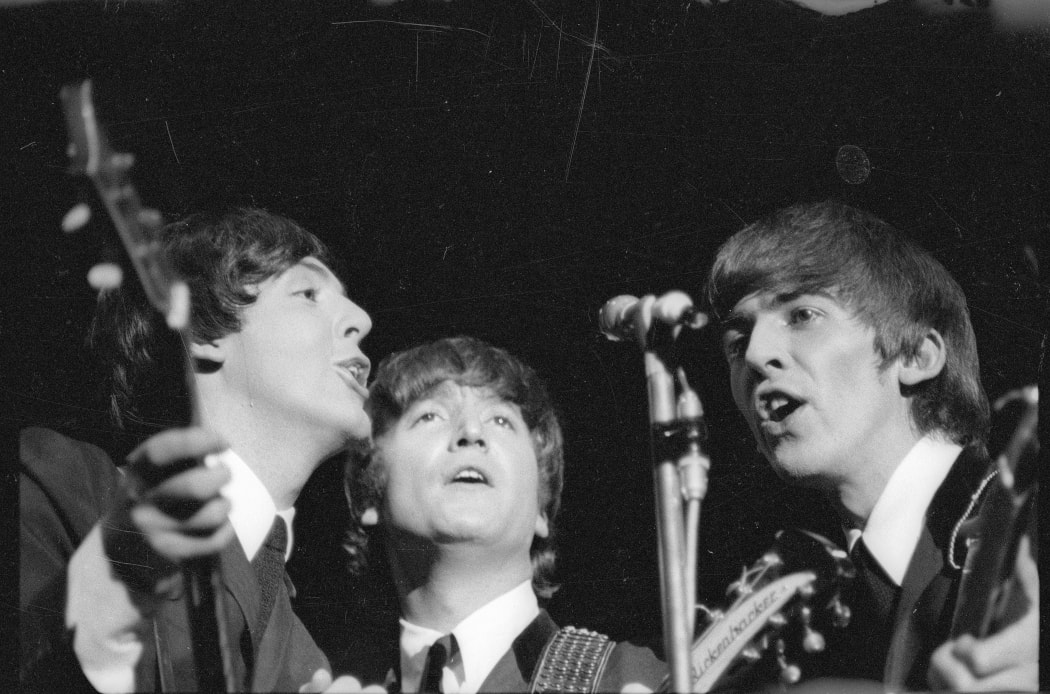
Paul McCartney, John Lennon and George Harrison singing during their Wellington Concert. Photo: The Dominion Post Collection, Alexander Turnbull Library
His best-known compositions are not only Beatle classics, but 20th Century standards. Simon Sweetman joined Jesse Mulligan to take a timely trawl through some of Harrison's lesser-known tunes.
Harrison was the youngest of four children and the youngest of the four Beatles.
Sweetman says this 'younger brother' complex frustrated him, but by 1966 with The Beatles at the height of the fame, Harrison emerged as a songwriter to equal Lennon and McCartney.
Three Harrison compositions appear on Revolver in 1966 - 'Taxman', 'Love to You' and 'I Want to Tell You'.
'Love to You', Revolver, The Beatles, 1966
"This is when he really starts to get going as a songwriter and he gets going with some force and Revolver has three of his songs on, the most he gets to have on one single album by the Beatles," says Sweetman.
This song, with its use of sitar shows Harrison's growing interest in Indian philosophy and music.
'Cry For A Shadow', Ain't She Sweet, The Beatles, 1961
Probably the only ever Lennon-Harrison composition, it shows Harrison, only 17 at the time and very much in Hank Marvin mode, showing signs of his later distinctive guitar style.
Harrison's influences as a guitarist were Carl Perkins, Chet Atkins and Chuck Berry. Never flashy, as a soloist he worked in the service of the song.
"His breakthrough composition for the Beatles is 'Taxman' his first song that is an opening track on an album at the height of their fame. It has this explosive guitar solo that is actually played by Paul McCartney.
"It's a moment when the songwriter understood what was right for the song." Sweetman says.
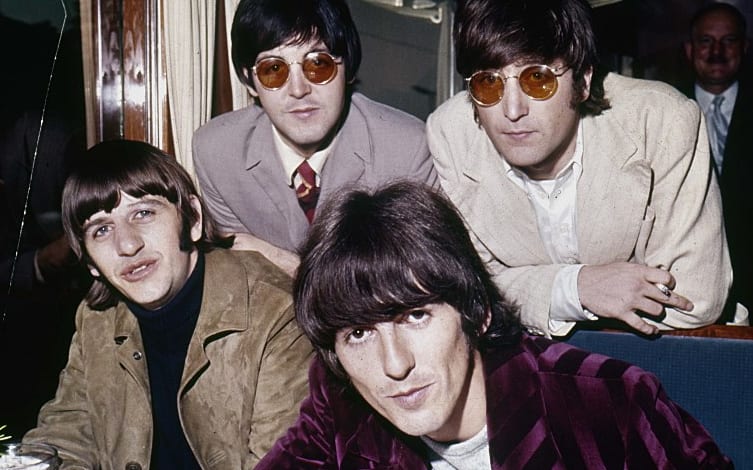
The Beatles Photo: AFP / FILE
'Badge', Goodbye, Cream, 1969
By the late 1960s Harrison was getting frustrated being a Fab, and resentful that so many of his songs were getting knocked back by Lennon and McCartney.
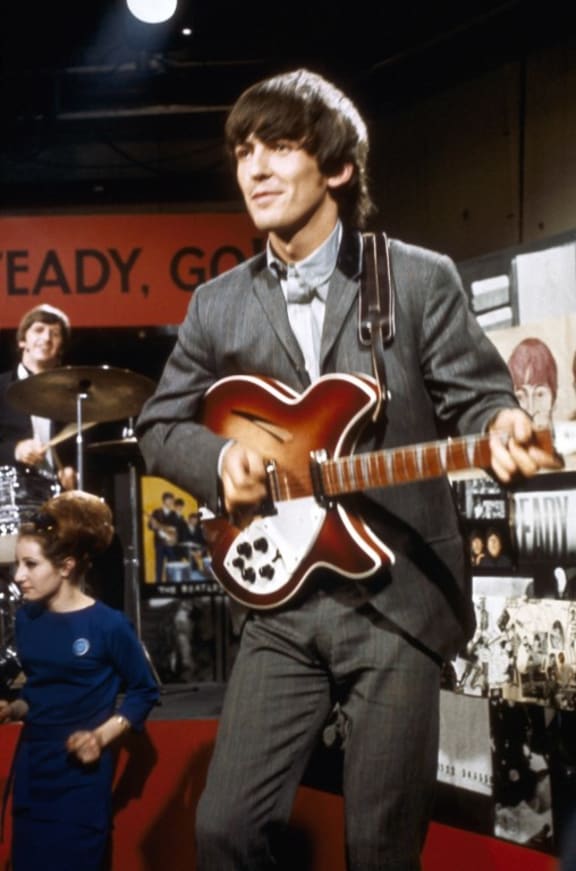
George Harrison Photo: AFP / FILE
He was in the midst of an enormously productive creative period.
"He wrote dozens of songs - maybe a hundred songs - in a small, two-year window towards the end of The Beatles.
"It kept his solo career afloat for really the entire 1970s," Sweetman says.
'Badge' was co-written with his lifelong friend Eric Clapton for Cream's farewell album - the middle eight is Harrison's contribution - along with the lyrics.
'Give Me Back My Dynamite', Doris Troy, Doris Troy, 1969
His first collaboration while still a Beatle, Harrison co-wrote the song and produced the album. He also put together a killer band to back Troy - who was signed to Beatles label Apple - including Ringo Starr, Eric Clapton, Billy Preston and himself.
'Wah-Wah', All Things Must Pass, George Harrison, 1970
This was written by Harrison during the end of the Beatles in response to an argument. He saved it for his first official solo album All Things Must Pass.
"This is a towering record; this is his big statement. When the Beatles broke up they all rushed out with solo records.
"George releases a triple album and it's filled with these great musicians - Eric Clapton, Billy Preston."
It's also an album filled with many songs John and Paul had rejected, Sweetman says.
'Wah-Wah', Sweetman says, pre-empts the Black Crowes by about 20 years, and Oasis by about 25.
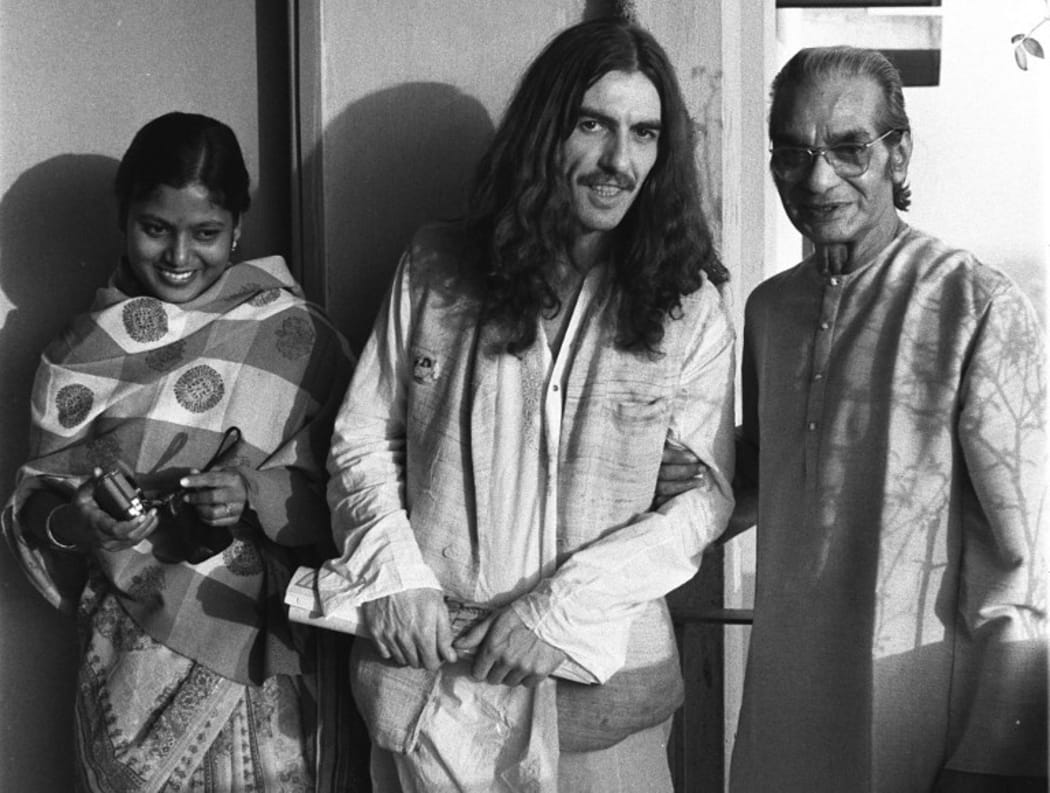
George Harrison in India 1972. Photo: AFP
'Sue Me, Sue You Blues', Living In The Material World, George Harrison, 1973
The bitterness of The Beatles' breakup lingers on this song, which comments on the various lawsuits flying around at the time.
"No one from The Beatles struggled with the break-up of the Beatles more - or wrestled with it in their song writing more - than George," Sweetman says.
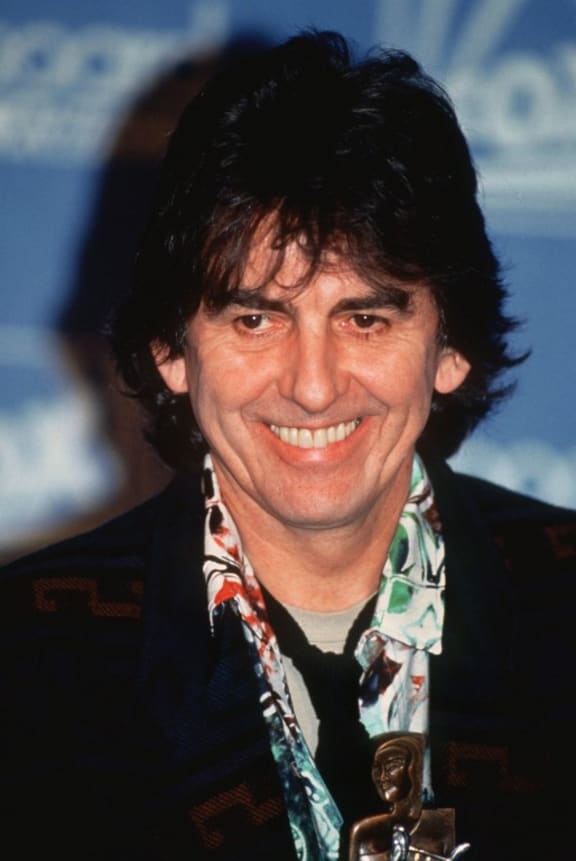
George Harrison in the 1980s Photo: AFP / FILE
"It comes up quite a bit. He's angry and bitter about both John and Paul, although he's very loyal to Ringo."
'Woman Don't You Cry For Me' Early Takes (originally on Extra Texture, 1976), George Harrison
This early demo version of the song was written when Harrison was still a Beatle. It's Harrison clearly showing his Bob Dylan influences. Sweetman says John Lennon and Bob Dylan were his two main song-writing influences.
'All Those Years Ago', Somewhere in England, George Harrison, 1981
This song is a tribute to John Lennon, and features Ringo, George and Paul all on the same recording for the first time since 1969.
Lennon was murdered in December 1980. After this, Harrison slows down and reinvents himself as a film producer with Hand Made Films.
'Cloud 9', Cloud 9, George Harrison, 1987
Something of a comeback for Harrison and the last genuine solo album of his career, it was produced by Jeff Lynne and foreshadowed the formation of the Traveling Wilburys the following year.
'Handle With Care', Vol 1, Travelling Wilburys, 1988
Harrison put together the super group The Traveling Wilburys with Bob Dylan, Roy Orbison, Tom Petty and Jeff Lynne. This album was a huge commercial hit and revived the careers or Orbison and Dylan.
"Make no mistake - The Traveling Wilburys were George's band, George was the leader, and I think he relished the idea," says Sweetman.
'That Kind of Woman', Still Got the Blues, Gary Moore, 1990
Harrison wrote this, and plays a guest slide solo on this which Sweetman says is the standout track of an album that has not aged well.
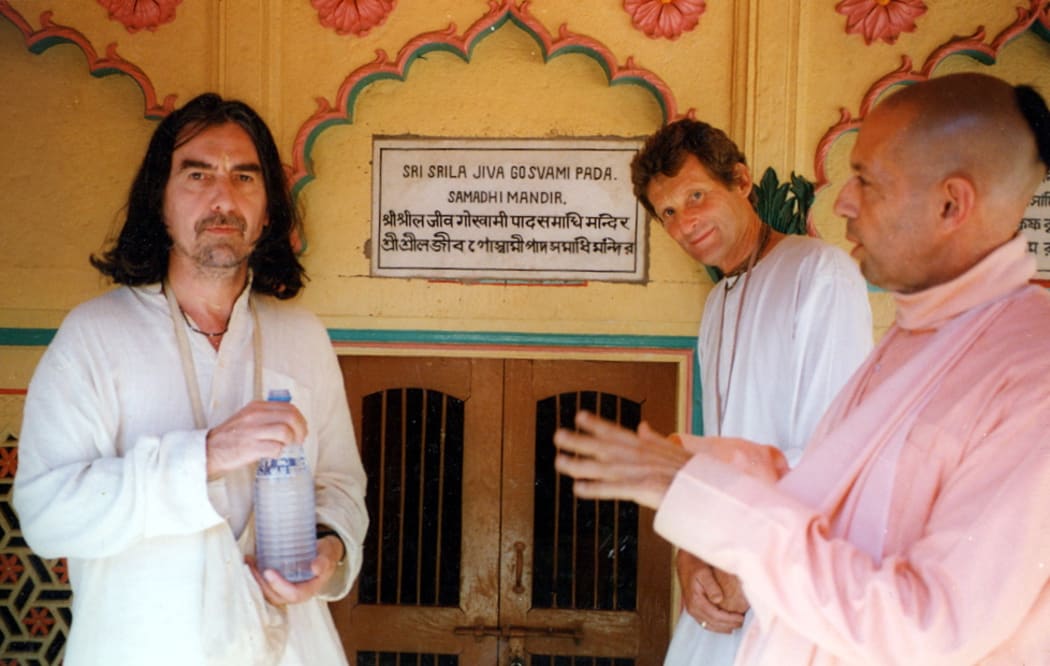
George Harrison India 1996 Photo: Wikicommons
'Free As a Bird', Anthology 1, The Beatles, 1995
This, famously, was Ringo, George and Paul recording new parts in 1995 to a John Lennon demo. It features some distinctive Harrison fretwork at the start of the song.
'Any Road', Brainwashed, George Harrison, 2002 (Released posthumously)
This is the opening song from his Harrison's final album, recorded over many years leading up to his death. It was completed by his son Dhani and producer and friend Jeff Lynne, to Harrison's instructions.
Check out Simon's Spotify playlist of all his favourite George Harrison songs:

